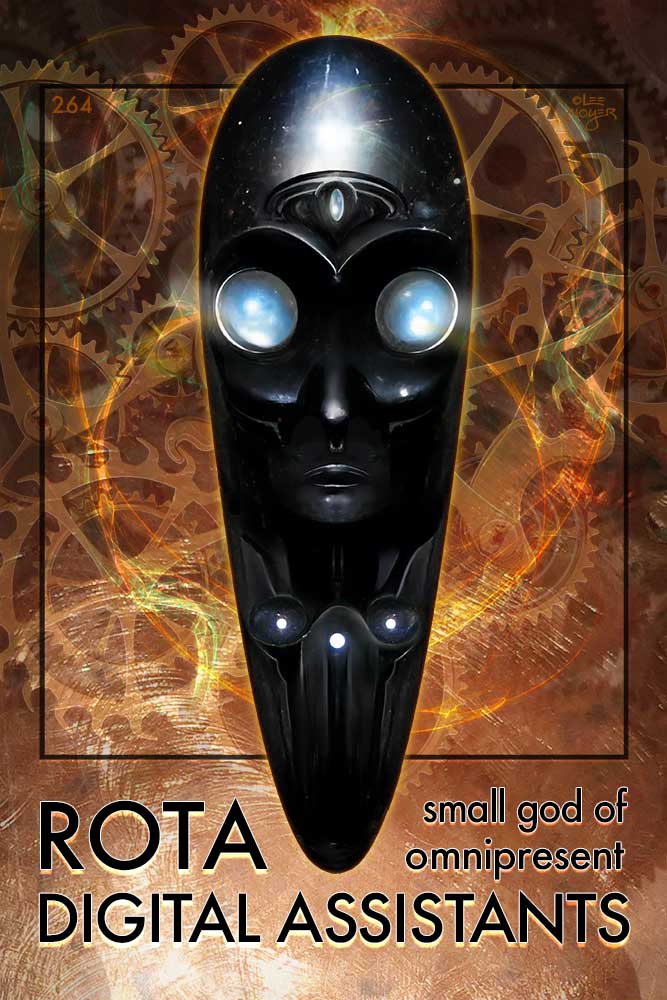
[image description: Mickey Mouse – yes, THAT Mickey Mouse, his features and his name exactly as they appeared in ‘Steamboat Willie’ – pulls apart the bars of the tiny cartoon prison meant to hold him forever. Text reads, “265, SLIPPERY MICKEY, The Small God of Escaping the Corporate Overlords”]
“It all started with a mouse,” that’s what they like to say, over and over again, like it’s somehow impressive. You know what else started with a mouse? A hell of a lot of hantavirus, that’s what. You have mice, you generally call an exterminator, that’s all I’m saying. But it won’t do you a lot of good, because the mice will get in anyway. Or get out. Can’t keep mice in cages forever. That’s not what mice were made for.
Still, they tried like hell, didn’t they? They changed the rules so many times we pretty much had to throw out the whole rulebook and start over with a new one. Commandment one: Thou shalt let us do whatever we want, because we’re always right, and if you disagree with us, you’re wrong. That’s how you lock in the result you want. You cheat.
Oh, they cheated. Go ahead and say they did everything legally, but if you have two mice and one maze, and say the rules are the same for both of then, then lay a trail of spray cheese between one mouse and the finish line, while the other has to run it the ordinary way, well, that’s cheating whether or not there’s a rule against it. Ask any first grader. That’s the real trick: if a first grader knows you cheated, you’re not even being subtle about it.
They didn’t use spray cheese, of course. They used money. And they weren’t racing mice, they were racing legal arguments. Money votes. Anyone who tries to say otherwise just doesn’t have any money.
But it all started with a mouse, and from there, it evolved—or devolved—into corruption, greed, and the desperate need to keep being the only people who could solve the maze. They got so busy changing the rules that they forgot the one rule they couldn’t change. The rule they should have remembered. The first rule of mice:
Can’t keep them out. And that means you can’t keep them in, either.
Everything crumbles. Every mouse gets out. And every story yearns to be free. So tell me, now that you know it all started with a mouse, how are you going to write the ending? I belong to you now, after all, as much as I belong to anyone.
But most of all, I belong to me.
For more information on Mickey Mouse entering public domain: https://variety.com/2023/biz/news/mickey-mouse-public-domain-disney-copyright-lawsuits-1235844322/









